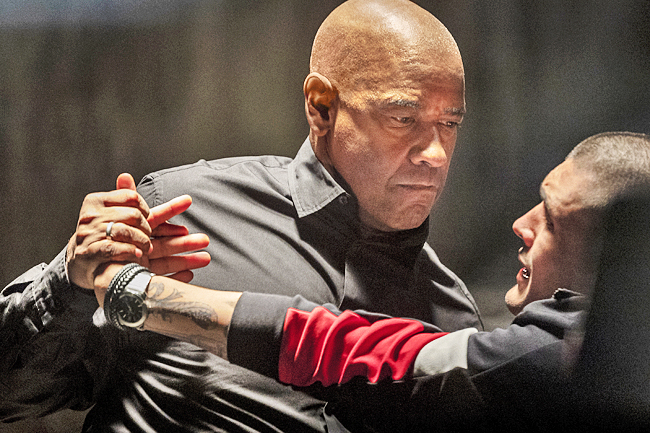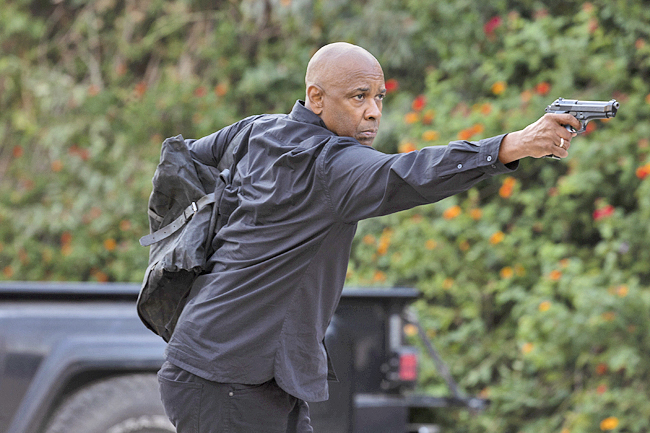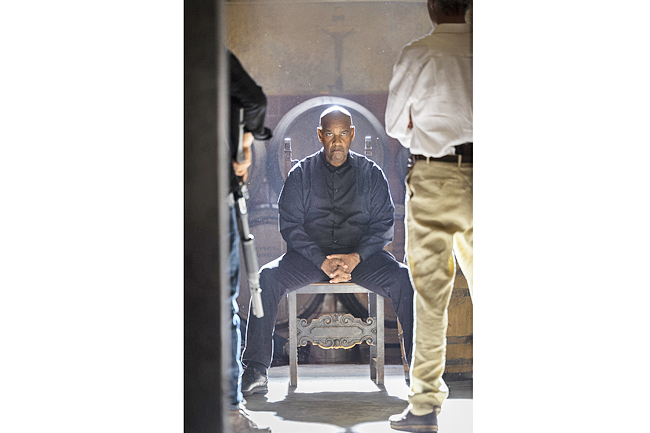AP – There’s an awful lot of talk about the end of movie stars considering Denzel Washington is right over here, walking around.
Antoine Fuqua’s Equalizer 3, a taut and textured sequel to Washington’s vigilante series, isn’t one of the actor’s best films. It wouldn’t crack his top 10.
But it vividly encapsulates Washington’s formidable on-screen potency.
You might think this would be in the movie’s brutal action sequences, but no. It’s the scenes of Washington fastidiously having a cup of tea at a sidewalk cafe or strolling the streets of a Sicilian town. This is a movie stitched together less by its plot mechanics than the pleasure of watching Denzel smirk, scowl and smile, in leisurely scenes mixed in with all the murder.
In that way, the Equalizer movies (the third of which is certainly the best of a so-so bunch), remind me of those great Walter Matthau thrillers like Charley Varrick and Hopscotch – movies about old men with expressive eyebrows who are set in their ways but have plenty of tricks left up their sleeve. (Washington, now 68, also took over Matthau’s role in the remake of Pelham One Two Three)
There’s no shortage these days of older stars plying their special sets of skills in action thrillers.
Throw a stone in a movie theatre and you’re likely to hit (and risk drawing the lethal ire of) Liam Neeson, Harrison Ford or Tom Cruise. Equalizer 3, an all-in-all good entry in the genre, is on the bloodier end of the spectrum.



Yet curiously neither the fight sequences (rapid and grotesque) nor the film’s sense of suspense (perfunctory) are much of a selling point. The film, scripted by Richard Wenk, opens with a trail of bodies through the main house of an Sicily vineyard. In the cellar calmly sits Robert McCall (Washington), who shrugs, “Wouldn’t let me in, so…”
The Equalizer is loosely based on an 1980s TV series about a former intelligence service agent who spends his retirement bringing the scales of justice back in balance for regular folks he happens to encounter. And there’s a pleasantly episodic quality to the third film in the series.
A bullet in the back leaves McCall laid up in recovery after he’s taken in by a kindly village doctor named Enzo (Remo Girone).
We’re in Southern Italy. Most of the film was shot along the Amalfi coast, specifically the enchanting medieval fishing village of Atrani.
If there’s one truly implausible thing about Equalizer 3, it’s the fact that there isn’t a tourist in sight. McCall, who once out of bed strolls the village’s cobbled steps with a cane, seems to be the only American in town. He’s quickly charmed by the people who warmly welcome the ‘Americano’.
And the same time, the Camorra mafia is pushing harder into the village, with intentions of driving out locals to make room for hotels. They make a small army of designer-dressed, tattoo-covered thugs, and they descend on the village, unaware of the lurking elite vigilante quietly sipping tea across the street from their shakedowns or eating pasta at the next table.
The well-travelled Fuqua, who helmed both prior Equalizer movies and first directed Washington in Training Day, is in his genre wheelhouse here. He trails McCall patiently and soaks up the local colour.
There’s a sinister, ominous sense of evil scourges – a heinous drug sold by the mafia is funding terrorists cells – seeping into a society of “good people”.
The clear dichotomy of good and bad is cozy, and so, too, is Washington’s savage, untroubled dispatching of the mafia ring.
There are CIA officials in the mix, too, including Dakota Fanning’s desk clerk turned operative.
But they are mostly following McCall’s lead. He – Washington really – is in a league of his own, and Equalizer 3, smartly, doesn’t even try to suggest it’s a close race. Not all are created equal, after all. – Jake Coyle






